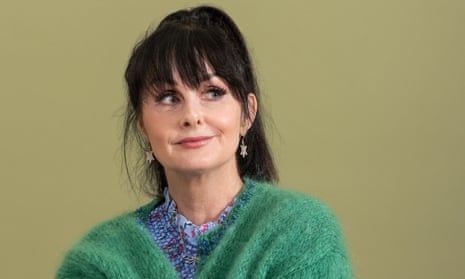My earliest reading memory
Aged about six, in bed, consumed by my first Enid Blyton, The Twins at St Clare’s, my dad at the door telling me to turn off the light and go to sleep. I tried to carry on reading in the dark because leaving that fictional world and reconnecting with the real one was too much of a wrench. Without a doubt, reading was my first addiction.
The book that changed me as a teenager
Down and Out in Paris and London by George Orwell. His 1933 memoir of living with the destitute activated my social conscience at the age of 15. Even now, I often think about one particular story: a man who, after his fiancee was crushed by a bus, went on a bender. Shaky from the aftermath, when he resumed his job in construction, he fell 40ft, destroying his foot. Crippled, he could no longer work and was entitled to nothing – no workplace insurance, no disability benefit.
The book that made me want to be a writer
At 28, I read Fabulous Nobodies by Australian author Lee Tulloch. About a young skint woman, living in Manhattan, working as a door girl at a glitzy nightclub, yearning for love and fabulous clothes, it was hilarious and relatable. It was the first time I’d read about someone a little like me. So, when I began writing, that was the vibe I wanted to recreate: a comic novel about an ordinary woman on the wrong side of the success/love/happiness divide.
The book I could never read again
Portnoy’s Complaint by Philip Roth. I read it sometime in my clueless 20s and was both dazzled by the writing and so disconnected from feminism that I decided it was “great” – that reading about how much men despised women was bracing, indeed character-forming. These days, the writing is doubtless still dazzling but my internalised misogyny is far less powerful. No plans to reread it.
The book I discovered later in life
The Cazalet Chronicles by Elizabeth Jane Howard. Written in the 90s but I didn’t discover them until 15 years ago. What magic transforms a book into a compelling, moving, unputdownable read? I don’t know, but whatever it is, these five gorgeous novels have it. The characters! I cared about them so much. They behave in interesting, venal, believable ways. They’re recognisably human: frustrating, flawed, lovable. Maybe my favourite books ever.
The book I reread
Girl, Woman, Other by Bernardine Evaristo. I rarely reread a novel but I find the structure, the writing and the energy here so exciting that on each reread (three times now) I appreciate it more. The richness of the characterisation, the risks taken with voice and the confident ownership of writing style is inspiring. I love to read novels where the unspoken rules of language and narrative are broken.
The book I came back to
None. I’m brisk and ruthless with books. One shot to impress me and if you miss, you miss. There are too many other books out there waiting to be discovered. (An aside, I have no trouble whatsoever giving up on a book which isn’t doing it for me. The book doesn’t have feelings, it won’t mind if I move to pastures new.)
My comfort reads
Eva Ibbotson’s The Morning Gift or The Secret Countess. Such an interesting writer: an Austrian refugee who came to the UK in the 1930s. Both novels are about displaced people in a time of war but written with such a lightness of touch and extraordinary charm that they always change my mood to hopeful. Absolute balm.
after newsletter promotion
What I’m reading now
The Hunter by Tana French. Like Jane Harper, whom I also love, she’s billed as a crime writer, but with her mastery of characterisation and atmosphere, she transcends genre. I’ve loved every single one of her novels.
